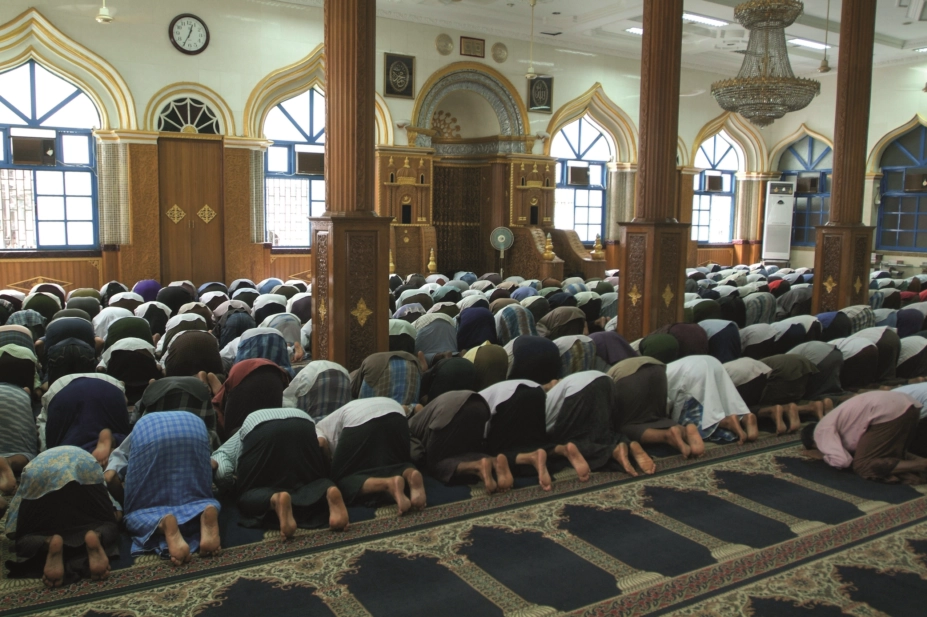
Shutterstock.com
One of the major tenets of Islam is fasting during the month of Ramadan. Approximately 2.7 million Muslims live in England and Wales [1], and many will observe fasts in 2017.
Fasting during the holy month of Ramadan involves complete abstention from food and water, from dawn till dusk. In the UK, the length of the fast varies from 8–20 hours.
Ramadan is the ninth month of the Islamic lunar calendar, and it bears importance to Muslims. In 2017, Ramadan starts at the end of May and finishes at the end of June.
Ramadan starting dates
2017 – Friday 26 May
2018 – Wednesday 16 May
2019 – Monday 6 May
2020 – Friday 24 April
Fasting may be beneficial to healthy individuals [2], but it can have adverse effects on patients with chronic diseases [3]. International studies suggest that clinicians may not be fully equipped to educate Muslim patients who want to fast. In fact, some clinicians report feeling uncomfortable when discussing Ramadan with their Muslim patients [4].
The British Islamic Medical Association (BIMA) hopes to address this issue with the launch of its ‘Ramadan Education Initiative’, a multi-centre training programme that equips healthcare professionals with the skills and knowledge to provide safe and effective care for their Muslim patients during Ramadan.
What is the BIMA?
The British Islamic Medical Association (BIMA) is a democratic, national membership organisation that aims to inspire, unite and serve the Muslim healthcare professionals in the UK.
The BIMA strives to give the contributions and challenges of Muslim healthcare professionals – who form a large portion of the NHS workforce – the platform to be heard and championed. The organisation harnesses the collective skills in the service of communities and society at large.
The BIMA aims to:
- Promote better understanding and appreciation of the principles and values of Islam among all healthcare professionals.
- Protect and promote the health of patients and the public by adhering to fundamental Islamic ethics and good medical practice.
- Promote research and education in the field of medicine, Islamic medical history and Islamic medical ethics.
- Engage professional skills in charitable activities locally and globally to help the needy, irrespective of colour, faith or creed.
In 2016, the Ramadan Education Initiative was delivered at 10 centres by knowledgeable doctors and medical students.
During the project, 120 participants completed pre- and post-session questionnaires that tackled common misconceptions in managing the health of Muslim patients during Ramadan, to assess the effectiveness of the training.
Around 90% of participants were qualified medical clinicians, and the questionnaire showed a 21.5% improvement in Ramadan knowledge and management after the training. The results suggest a Ramadan education intervention can improve understanding – even in qualified doctors.
Over 25% of participants felt that they had learnt the most about alternative drug administration routes for Muslim patients who are fasting. Drug administration is a vital responsibility of practising clinicians, so knowledge gaps in this area are concerning.
The data show positive feedback on the training: the session was interesting, delivered at the right level, and included appropriate and effective content.
Ramadan training improves clinicians’ pre-existing knowledge, and a national innovative education intervention may be useful for healthcare providers. Further training that tackles common misconceptions could help the delivery of a tailored and efficient healthcare service in the future.
For 2017, BIMA has expanded its team to include pharmacists, like myself and other patient-facing health professionals, to advise on medicines management during Ramadan, and to conduct face-to-face teaching sessions for healthcare professionals.
BIMA would like to further expand its team of Muslim pharmacists. If you would like to get involved, please contact: info@britishima.org
If you have any queries regarding medicines management during Ramadan, or how to advise and counsel your patients during Ramadan, please contact the BIMA at: ramadan@britishima.org
Acknowledgements: Nadia Bukhari would like to thank the British Islamic Medical Association for its help in delivering the Ramadan Education Initiative and to Thorun Miah et al, and Dr Emma Wiley, Founder & Lead for the Ramadan Initiative Project, BIMA
References
1. Office for National Statistics. Religion in England and Wales 2011. Accessed at: https://www.ons.gov.uk/peoplepopulationandcommunity/culturalidentity/religion/articles/religioninenglandandwales2011/2012-12-11#religious-affiliation-across-the-english-regions-and-wales (accessed 16 May 2017)
2. Azizi F. Islamic fasting and health. Ann Nutr Metab 2010;56(4):273–82. doi: 10.1159/000295848
3. Herrag M. Ramadan: a difference side of the emergencies? Afr Health Sci 2010;10(2):215–6. PMCID: PMC2956297
3. Mughal F, Meki A & Kassamali RH. Shisha: is this addressed within smoking cessation in general practice? Br J Gen Pract. 2014;64(621):173. doi: 10.3399/bjgp14X677789


